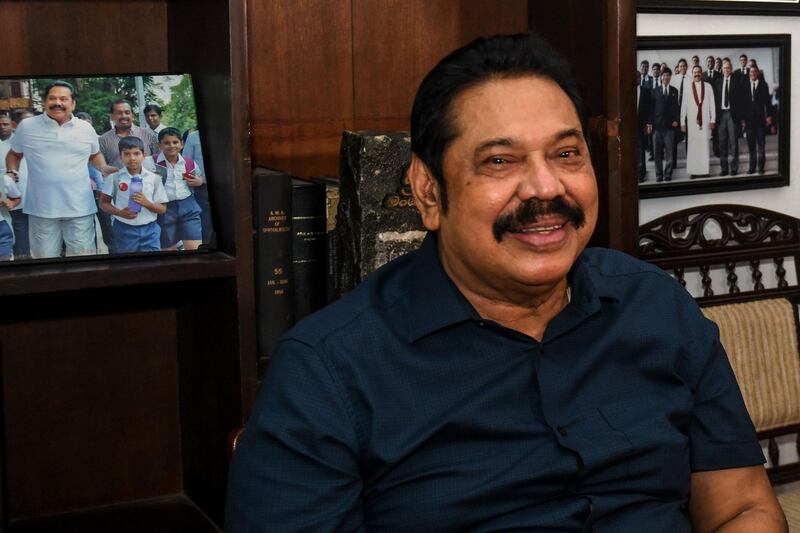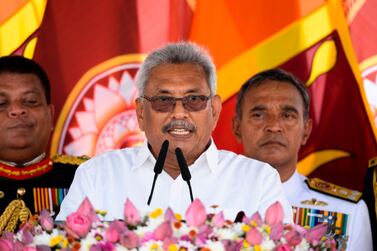Sri Lanka's parliamentary elections handed President Gotabaya Rajapaksa and his older brother an overwhelming majority, results showed on Friday, giving the family power to enact sweeping changes to the constitution of the island nation.
Mr Rajapaksa had sought, and achieved, a two-thirds majority for his Sri Lanka Podujana Peramuna party and its allies to be able to restore full executive powers to the presidency, a move analysts say could push the country toward authoritarianism.
The ruling group won 150 seats in the 225-member parliament, according to a tally from Wednesday's vote published by the election commission.
The two-thirds majority will see Mr Rajapaksa's brother and former president, Mahinda Rajapaksa, 74, taking over as prime minister on Sunday as the tourism-dependent nation struggles to recover from last year's deadly Islamist militant attacks and, more recently, lockdowns to control the coronavirus pandemic.
The brothers' popularity has risen among Sri Lanka's Sinhalese majority since the 2019 Easter Sunday attacks and because of their record in crushing Tamil separatist rebels in 2009.
President Rajapaksa, 71, said the restoration of full executive powers was necessary to implement his agenda to make the country of 21 million economically and militarily secure. No timeline has been set for such a move.
"We will ensure [Sri Lanka] will not stand disappointed during our tenure," Mahinda Rajapaksa said on Twitter.
Currently, significant power is bestowed on parliament and the prime minister after a previous government led by the now- opposition amended the constitution and set up independent commissions to oversee the police and the judiciary, among other arms of the government.
"We have seen in the past when governments have had a two-thirds majority [they do] not have to worry about checks and balances," historian and political scientist Jayadeva Uyangoda said.
"In fact they have untrammelled power, that is what we have observed in both India and Sri Lanka. In the past in Sri Lanka, the governments which had this level of power in 1970 and thereafter in 1977 generated a lot of social discontent."
Veteran journalist and political commentator Victor Ivan anticipates a power struggle between the brothers, who are known for stamping out the Tamil Tigers insurgency for a separate homeland for the Hindu minority during the elder Rajapaksa's presidency in 2009, ending a 25-year civil war.
"The president wants to change the constitution to take back the power to the presidency," Ivan said. "In this situation either the elder brother must step aside and cede power to the younger brother, or the younger man must take a step back and allow the older brother to exercise power."
Sri Lanka's economy contracted by 1.6 per cent in the first quarter of 2020 as Covid-19 restrictions battered a country still recovering from last year's Easter Sunday bomb attacks that killed 269 people and paralysed the tourism industry.
In a congratulatory phone call from Prime Minister Narendra Modi of India, which is keen to check Chinese influence on its southern neighbour, Mahinda Rajapaksa vowed to deepen relations between their countries.
"Sri Lanka and India are friends and relations," the senior Rajapaksa, who had drawn his country closer to China during his presidency, wrote on Twitter after the call.
Sri Lanka in 2017 had to cede control of its southern port of Hambantota to its Chinese financiers after struggling to repay its debt for the project.






